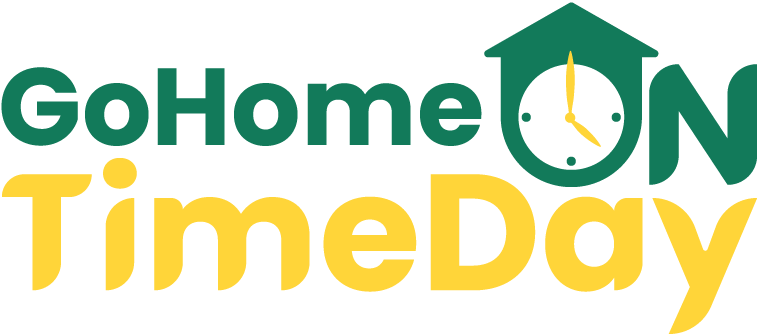Hi there! I’m prepared to assist you in conquering your job interview by providing examples of efficient time management.
I will share insights on answering interview questions about time management, tips on prioritizing tasks, and demonstrate your ability to meet deadlines.
You’ll also learn how to describe your techniques for managing work schedules effectively.
Ready to impress your future employer? Let’s dive in!
Key Takeaways
- It can demonstrate a candidate’s robust employee potential and ability to handle work responsibilities within set deadlines.
- Personal time management strategies, such as prioritizing tasks, setting goals, and breaking projects into manageable parts, are vital professional skills that can set candidates apart.
- When answering time management interview questions, candidates should use the STAR method to craft comprehensive and compelling answers, incorporating real-life examples and showcasing knowledge of productivity tools.
- Task prioritization prowess, meeting deadlines and handling pressure, utilizing downtime efficiently, and delegating tasks are all essential aspects of time management skills that can be highlighted in an interview.
Understanding Time Management Skills and Their Role in Job Interviews

I will explain the role of time organization skills in employment interviews.
We’ll start with why interviewers ask about these skills.
Then, we’ll move on to their significance in the professional sphere.
Purpose of Interview Questions About Time Management
When they ask about your time organization skills in an employment interview, they’re trying to gauge if you can efficiently handle work responsibilities within set deadlines. The purpose of interview questions about time management isn’t just to trip you up but to assess your potential as a robust employee.
Let’s look at common time management interview questions and what they reveal:
| Interview Questions | What It Reveals |
| How do you prioritize your work? | Your ability to discern what’s essential |
| How do you handle deadlines? | Your pressure-handling and planning skills |
| Tell us about a time when you missed a deadline. | Your learning from past mistakes |
Management interview questions and answers reveal more than your job skills; they tell potential employers about your work ethic and adaptability.
The Importance of Good Time Management Within a Corporate Work Environment
As a professional, good time management is a fundamental skill that can significantly impact productivity and efficiency within a corporate work environment. It’s not just a concept; it’s a practical tool that can shape your day-to-day operations leading to success.
Good time management helps to better rank tasks and allocate time efficiently. It aids in reducing stress and improves overall job satisfaction. The importance of good time management also lies in its ability to minimize procrastination and improve decision-making. It enhances work quality and fosters a positive corporate culture.
Finally, time management skills are often scrutinized in an interview, highlighting their significance in the interview process.
Mastering this skill can truly set you apart in the competitive corporate world. In a job interview, you may be asked about your ability to manage your time effectively and complete the tasks on your to-do list.
Many interview questions about time revolve around staying organized and allocating time wisely, especially when you have many things on your plate.
Highlighting Personal Time Management Strategies as a Key Professional Skill
Let’s delve into how effectively highlighting personal time management strategies can elevate your professional skill set and significantly impact the outcome of career interviews.
A time organization skills example interview may focus on how you manage your time effectively. It’s crucial not just to state that you possess this critical professional skill but to demonstrate it with solid examples.
You may be adept at prioritizing tasks, setting goals, and breaking projects into doable parts. These are all strategies that can set you apart.
Insightful Tips for Answering Time Management Interview Questions

Now, let’s move on to some savvy tips for answering time management interview questions.
We’ll start by identifying common questions.
Before moving on to creating compelling and comprehensive responses.
Lastly, I’ll show you how to pepper your answers with real-life examples and anecdotes for that extra impact.
Identifying Common Time Management Interview Questions
While I’m preparing for an interview, it’s crucial for me to understand common time management interview questions and develop insightful, precise responses to them.
Behavioral interview questions are prevalent, as they help employers gauge an applicant’s past behavior to predict their future performance.
Here are some examples of these common questions:
- How do you rank your work?
- Can you describe when you had to meet a tight deadline?
- Have you ever had to juggle multiple projects at once?
- How do you handle interruptions while working on a critical task?
- Can you provide an instance when your time management abilities significantly improved your team’s performance?
For each, I’d craft example answers demonstrating my time management abilities and readiness for the role.
Formulating Comprehensive and Compelling Answers
To formulate comprehensive and compelling answers to these time management questions, I’d focus on sharing specific examples from my experience that highlight my skills and abilities in this area. The STAR method (Situation, Task, Action, Result) provides a structured approach to producing sample answers.
| Question Type | Tips for Answering | Sample Answer |
| “Tell me about a time…” | Use the STAR method to structure your response | “I once led a project with tight deadlines…” |
| “How do you prioritize…” | Show your ability to identify urgent vs. essential tasks | “I typically start by listing all tasks…” |
| “How do you handle interruptions…” | Demonstrate your capacity for flexibility and adaptability | “I generally plan for unexpected interruptions…” |
| “What tools do you use…” | Showcase your knowledge of productivity tools | “I regularly use tools like Asana and Trello…” |
| “Have you ever missed a deadline…” | Display your problem-solving and honesty | “Once, I misjudged the time needed for a task…” |
Incorporating Real-life Examples and Anecdotes
Incorporating real-life examples and anecdotes into my responses significantly enhances the credibility of my time management skills during an interview. Instead of merely stating that I’m good at multitasking, I provide specific examples demonstrating my prowess.
During a previous interview, I mentioned how I simultaneously managed two significant projects without missing any deadline. I often speak of when I expertly ranked tasks to meet a pressing deadline.
I’ve shared instances where I’ve delegated tasks effectively to ensure efficient time management. I’ve also described how I successfully used a time management tool to keep track of my tasks. Additionally, I recall a time when I completed an assignment ahead of schedule.
Job interview questions often include inquiries about time management abilities, and my approach is to showcase concrete examples to substantiate my claims.
This method answers the questions and provides the recruiter with tangible evidence of my abilities. It shows that I know the importance of each task and the urgency of meeting each deadline.
Prioritize Your Tasks – A Fundamental Time Management Skill

Let’s now shift our focus to a critical aspect of time management – prioritizing tasks.
I’ll highlight how you can demonstrate this skill in an interview, discuss some practical tools and methods, and share a personal instance when a good ranking led to better workload management.
It’s not just about getting things done but about deciding what needs to be done first.
Task Prioritization Knowledge in an Interview
During an interview, I often emphasize my ability to effectively rank tasks, a fundamental time management skill, by providing concrete examples of how I’ve successfully applied this in my previous roles.
The interviewer wants to know about my task ranking prowess, and I illustrate it clearly.
Here are some examples:
- Faced with an avalanche of tasks, I’d rank by urgency and importance, understanding the urgency of each task.
- In my previous role, I balanced multiple projects by ranking them based on deadlines and stakeholders’ expectations.
- I’ve used project management tools to help in task ranking, a crucial aspect of time management.
- I’ve delegated tasks when necessary, understanding that a part of effective teamwork and management is the ability to delegate tasks.
- I utilized downtime efficiently by preparing for upcoming tasks. This habit shows that you’re aware of the importance of using available time.
Handling the questions about a candidate’s time management skills needs a strategic approach, and I’ve aced it. Candidates who understand the significance of effective time management are often preferred by employers.
Being asked about time management during interviews is quite common, and it’s an opportunity to test your time management skills. Providing detailed answers and tips on how you improve your time management skills can set you apart from other job candidates.
Employers want to know that you won’t miss the deadline, and your ability to effectively manage tasks and distractions at work is crucial. This strategic approach can help you prepare for interview questions related to time management.
Tools and Methods for Effective Ranking
To effectively rank tasks, I’ve relied on various tools and methods crucial for time management. It requires the ability to estimate task duration and urgency accurately. Notably, project management software has been instrumental in helping me rank my work.
The table below provides an overview of the tools and methods I utilize:
| Method | Tool | Benefit |
| Estimation | Planning Poker | Accurate task duration |
| Prioritization | Eisenhower Matrix | Urgency vs. Importance |
| Project Management | Asana | Visibility and control |
| Time tracking | Toggl | Accountability and productivity |
These tools and the ability to rank are fundamental for effective time management. Understanding the intricacies of each task allows me to structure my workday for optimal productivity.
Example When Ranking Leads to Efficient Workload Management
In one of my previous roles, I had a challenging project that tested my ability to rank tasks for efficient workload management.
Here’s a snapshot of how I leveraged this fundamental time management skill:
- Identified critical vs non-critical tasks
- Estimated the time commitment for each task
- Allocated resources wisely, matching skill sets to tasks
- Kept open communication lines with the team
- Re-assessed priorities as needed
This systematic approach helped me manage my workload efficiently.
By sharing this example during a time organization skills examples interview, I’m showcasing my ability to rank effectively, a crucial factor in workload management.
Demonstrating Your Ability to Meet Deadlines in Interviews

Let’s now discuss how to show you can meet interview deadlines.
First, we’ll discuss handling the classic ‘Tell us about a time when…’ questions.
Then, we’ll work on crafting responses that highlight your achievements in meeting time requirements.
We will also explore the role of time management when under pressure.
Understanding “Tell us about a time when…” Type of Interview Questions
When you’re asked the ‘tell us about a time when…’ type of interview questions, it’s your golden opportunity to showcase your deadline-meeting prowess. Interviewers often ask these questions to evaluate your time organization skills.
Here’s how you can approach it:
- Start by setting up the situation succinctly.
- Describe the assigned task, highlighting how you juggled important and urgent responsibilities at work.
- Discuss your action to meet the due date, emphasizing your commitment to being productive and efficient.
- Share the result of your effort, showcasing the positive outcomes of your time management and how it contributed to the overall success of the task.
- Finally, reflect on what you learned from the experience and how your time management skills may have evolved through this process, making you even more effective in future endeavors.
Crafting Responses that Showcase Deadline Achievements
While I’ve just outlined how to approach ‘tell us about a time when…’ type of interview questions, it’s equally crucial to craft your responses to vividly showcase your achievements in meeting time requirements.
For instance, mention a project where you met the due date and delivered quality work. It could be when you demonstrated excellent time management to rank tasks effectively.
Discussing instances where you almost missed a due date but used effective time management strategies to turn things around is essential.
Crafting responses showcasing achievements is about showing resilience, adaptability, and commitment to delivering results, no matter the pressure.
Effective management involves meeting due dates and ensuring a sustainable work-life balance. Communicating this balance in your responses is crucial, whether you’re working on projects or managing your daily tasks.
The Role of Time Management in Meeting Deadlines Under Pressure
In my experience, effective time management plays a pivotal role in meeting high-pressure deadlines, especially during employment interviews. It’s crucial to manage your time effectively, understanding the urgency and impact of each task.
To paint a clearer picture:
- Rank tasks based on their deadline and the impact of the task. The most urgent and high-impact tasks should be on your list.
- Break down larger tasks into smaller, manageable chunks.
- Use tools like calendars, planners, or apps to keep track of due dates.
- Regularly re-evaluate your task list, adjusting as new tasks or priorities shift.
- Remember to factor in breaks. They’re essential for maintaining focus and productivity.
Mastering these skills can distinguish between feeling overwhelmed and confidently meeting due dates.
What Are Some Examples of Time Management Skills That Could Be Mentioned on a Resume?
Time management skills are crucial for enhancing productivity and achieving career success. Examples of such skills that can be highlighted on a resume include prioritizing tasks, setting deadlines, creating schedules, using productivity tools, delegating effectively, and avoiding procrastination. Mastering these skills can boost career with time management and demonstrate your ability to meet objectives efficiently.
Techniques Used to Manage Work Schedules Effectively

Managing work schedules effectively is crucial in any job. It’s not just about balancing the workload but also about handling additional time-bound responsibilities.
Let’s discuss some techniques that can help us ace this aspect of time management.
Interview Questions Regarding Workload Balance
As a professional, I’ve found three essential techniques to balance my workload and effectively maintain a streamlined work timetable.
These skills have come in handy, especially during a top time management interview:
- Prioritization: I identify high-impact tasks and focus on them first. It ensures I can stay on top of what’s most important.
- Time Blocking: I allocate specific time slots for different tasks, helping me manage my time better.
- Delegation: If someone else can execute a task, I delegate. It frees up my time for assignments that require my expertise.
- Breaks: I take regular breaks to refresh my mind, improving productivity.
- Review: I review my schedule regularly to make any necessary adjustments.
When asked time management interview questions, these techniques help address questions regarding workload balance.
Techniques Used to Manage Work Schedules Effectively
Five essential techniques have helped me manage my work timetables effectively.
- First, I’ve consistently ranked tasks based on priority, focusing on high-impact tasks. This strategy makes it manageable and reduces stress.
- Secondly, I’ve consistently used digital tools for scheduling, providing me with alerts and reminders.
- The third technique is delegating tasks when necessary, freeing up additional time.
- The fourth technique is setting realistic due dates to prevent burnout and ensure quality work.
- Lastly, I’ve made it a habit to regularly review and adjust my schedule to account for unexpected tasks or changes.
Examples of Successfully Handling Additional Time-bound Responsibilities
In my experience, I’ve successfully juggled numerous time-bound responsibilities using these same techniques. I’m proud to say that I haven’t missed a deadline.
- Whenever I’m given a new task, I immediately assess its urgency and importance. It helps me rank effectively.
- I use digital tools like calendars and project management apps to keep track of due dates and progress.
- I break down big tasks into doable chunks to complete the project in stages. It keeps me from feeling overwhelmed.
- I’ve learned to delegate tasks when necessary, ensuring I’m spread manageable.
- I can constantly adapt my schedule and strategies based on the project’s demands.
These techniques have served me well, proving I can handle additional time-bound responsibilities.
Frequently Asked Questions
What Are Some Examples of Soft Skills That Complement Strong Time Organization Skills?
In addition to time management, soft skills like effective communication, problem-solving, and adaptability greatly complement it. They’ve helped me become more efficient and successfully manage my tasks.
How Can I Showcase My Time Organization Skills on My Resume?
To showcase my time organization skills on my resume, I’d mention specific projects I’ve completed on time. I’d also highlight relevant tools or techniques I’ve used, like calendars, task lists, or project management software.
How Does One Develop the Ability to Manage Multiple Priorities Effectively?
I’ve developed the ability to manage multiple priorities effectively by setting clear goals, prioritizing tasks based on their importance, creating a schedule, and sticking to them. Regularly re-assessing my priorities also helps me stay on track.
What Are Some Exercises or Methods to Practice Improving My Time Organization Skills?
To enhance your time organization skills, try the ‘Pomodoro Technique.’ It breaks work into intervals separated by short breaks. Also, prioritizing tasks using the ‘Eisenhower Box’ can be beneficial.
Can You Provide Examples of How Time Organization Skills Can Impact Team Dynamics in a Work Setting?
When I manage my time effectively, I can meet due dates, avoid rushing tasks, and contribute at a higher level. It promotes a more stress-free environment, positively influencing the team’s overall dynamics.
Conclusion
Mastering time organization skills is crucial for any career interview.
You showcase your ability to handle pressure and work efficiently by prioritizing tasks and meeting deadlines.
You demonstrate your organizational prowess by sharing your techniques to manage work timetables effectively.
Remember, these skills aren’t just for the interview but are also vital for your career growth.
So, keep honing them and climb that corporate ladder swiftly.

